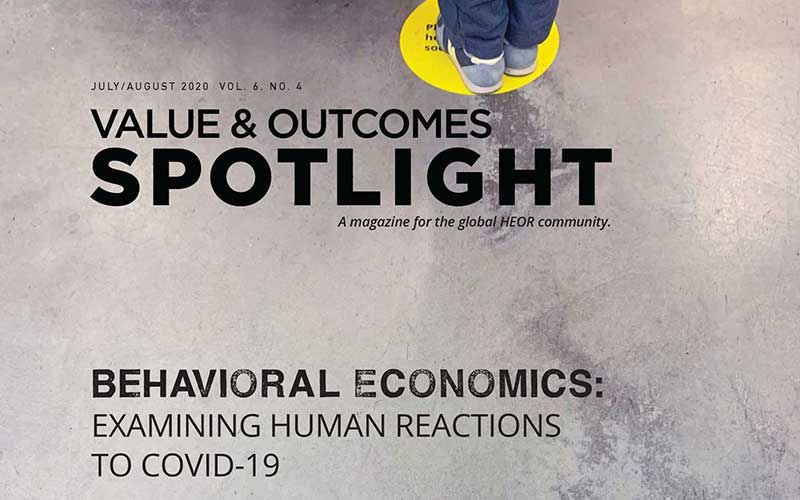
George’s article identifies the interface between experimental and behavioural economics and health economics by identifying and discussing 10 areas of potential debate about behavioural experiments in health. This is reviewed by posing 10 questions to explore these areas and then asking the authors to answer these questions systematically. By using this framework, the authors review the different streams and areas of application of the field of behavioural experiments in health by discussing which significant questions remain to be discussed, and by highlighting the rationale and the scope for the further development of behavioural experiments in health in the years to come.
ISPOR | July/August 2020 Value & Outcomes Spotlight | RESEARCH ROUNDUP
Section Editor: George Papadopoulos.
“Traditionally, approaches to consumer behaviour have been influenced by standard economic theory and models. These are based on the assumption of human rationality. Behavioural economics draws on psychology and the behavioural sciences in assessing consumer behaviour. This approach postulates that consumers are subject to a range of psychological biases and use various heuristics such as rules-of-thumb, or educated guesses, when making choices. More simply stated, behavioural economics applies economic and psychological principles to overcome barriers to behaviour change. We have identified 4 research papers that encapsulate these characteristics and are worth reading. We, as always, trust you enjoy delving into the research area of behavioural economics and look forward to highlighting new research in the next edition.”
Read the full article:

Recent Comments